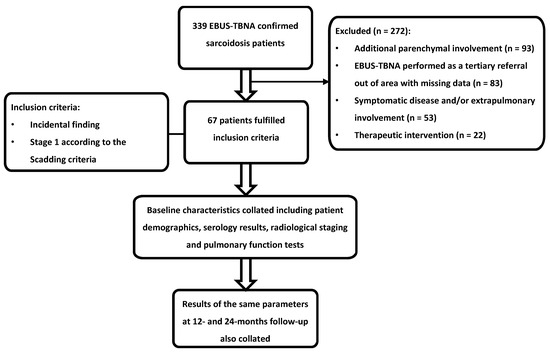A doctor has verified that the patient’s weight exceeds healthy standards. The patient’s body mass index indicates obesity.
Addressing weight issues is crucial for overall health and can significantly reduce the risk of chronic diseases. Medical professionals commonly use body mass index (BMI) as a simple and effective indicator to determine if an individual is overweight. This metric correlates with body fat levels, thus offering an insight into potential health risks associated with excessive weight.
A diagnosis of being overweight can serve as a wake-up call for patients, prompting them to seek healthier lifestyle choices such as a balanced diet and regular exercise. Early intervention and lifestyle modification can prevent further weight gain and associated health issues, reinforcing the importance of acknowledging and acting upon a doctor’s assessment.

Credit: www.thelancet.com
Defining Overweight: The Medical Perspective
Doctors use specific measures to tell if a patient is overweight. These measures help in understanding health risks. Let’s dive into the medical tools and risks linked with excessive weight.
Bmi And Body Fat Measurements
Body Mass Index (BMI) is a key indicator in assessing overweight conditions. It compares a person’s weight to their height. A BMI over 25 often means overweight. Above 30 is obese.
| BMI Range | Weight Status |
|---|---|
| Below 18.5 | Underweight |
| 18.5 – 24.9 | Normal |
| 25 – 29.9 | Overweight |
| 30 and Above | Obese |
Body fat measurement is another method. Skinfold thickness tests and bioelectrical impedance are common. They show the amount of fat compared to muscle.
- Skinfold test pinches your skin.
- A machine sends a safe signal through your body in bioelectrical impedance.
Risks Associated With Excessive Weight
Excess weight can lead to health issues. Doctors warn about these risks:
- Heart disease risks increase.
- High blood pressure becomes more likely.
- Type 2 diabetes risk goes up.
- Joint problems can occur.
- It can lead to sleep apnea.
- Certain cancers become a higher risk.
Maintaining a healthy weight is important for overall health.

Credit: www.mdpi.com
The Doctor’s Role In Diagnosing Weight Issues
Doctors play a pivotal role in addressing weight concerns.
They assess, guide, and support their patients towards a healthier lifestyle.
Conducting A Sensitive Conversation
Approaching weight discussions with care is key.
Doctors employ empathy and discretion to foster a trusting environment.
- Active listening ensures the patient feels heard.
- Personalized feedback tailors the conversation.
- Non-judgmental language promotes openness.
Tools And Tests Used By Physicians
Identifying weight issues involves various methods.
Doctors consider multiple factors to diagnose effectively.
| Tool/Test | Purpose |
|---|---|
| Body Mass Index (BMI) | Estimates body fat based on height and weight |
| Waist Circumference | Assesses abdominal fat level |
| Physical Exam | Checks for weight-related conditions |
| Blood Tests | Reveals underlying health issues |
- Review medical history.
- Analyze diet and exercise habits.
- Discuss impact on overall health.
Immediate Health Implications Of Being Overweight
Realizing you’re overweight can be a turning point. A doctor’s confirmation may come as a shock. Yet, it’s a critical wake-up call about your health. Understanding the immediate implications is key. These involve both physical and mental aspects.
Physical Health Complications
Excess weight puts strain on the body. This can cause harmful effects.
- Increased blood pressure: Extra fat tissue needs oxygen and nutrients. Your blood vessels work harder to supply these.
- High cholesterol levels: Weight gain often leads to higher LDL (“bad” cholesterol) and lower HDL (“good” cholesterol).
- Joint pain: More weight means more stress on your joints, especially knees and hips.
- Heart disease risk: Being overweight is linked with coronary problems. A heavy heart works harder to pump blood.
- Type 2 diabetes risk: Your cells might stop responding to insulin well. This can lead to high blood sugar.
- Obstructive sleep apnea: Excess fat around the neck can block air when you sleep.
Mental Health Concerns
Weight issues can take a toll on your mental well-being.
- Anxiety: Worry about health can grow. It may affect daily life.
- Depression: Sadness due to weight can lead to depression.
- Low self-esteem: Not feeling good about your body affects confidence.
- Stress: Managing weight adds to life’s pressures.

Credit: www.npr.org
Long-term Risks And Diseases
The journey to good health can be a challenging one, especially when a doctor confirms a patient is overweight. Being overweight does not just affect how one feels each day. It also increases the risk for serious health problems in the future. These risks shouldn’t be ignored. Understanding them is the first step in making healthy lifestyle changes.
Chronic Conditions Linked To Obesity
Carrying extra weight can lead to several chronic conditions. These are not simply short-term health issues but long-term diseases that can affect one’s quality of life.
| Condition | Impact of Obesity |
|---|---|
| Heart Disease | Strains the heart, increasing the risk of failure and blockages. |
| Type 2 Diabetes | Body struggles to use insulin correctly, raising blood sugar levels. |
| High Blood Pressure | Forces the heart to pump harder, leading to strain and potential damage. |
| Stroke | Increased weight can lead to blood clots, a risk for stroke. |
| Certain Cancers | Obesity may raise the risk of cancers such as colon, breast, and kidney. |
| Osteoarthritis | Excess weight stresses joints, causing pain and stiffness. |
Preventing Future Health Problems
To prevent these long-term risks, starting a path toward a healthier weight is key. Here are steps to start reducing the risk of developing obesity-related conditions:
- Eat Balanced Meals – Focus on fruits, vegetables, and lean proteins.
- Regular Physical Activity – Integrate exercise into daily routines.
- Consistent Sleep Schedule – Aim for 7-9 hours of sleep per night.
- Stress Management – Practice relaxation techniques like deep breathing.
- Regular Checkups – Visit a doctor to monitor health progress.
Turning The Diagnosis Into A Positive Turning Point
Welcome to an essential turning point. A doctor’s confirmation of being overweight can be daunting. Yet, it paves the way for a healthier future. Embrace this moment as a fresh start. A solid plan and support transform it into a positive journey.
Creating A Manageable Weight Loss Plan
Success in weight loss begins with a realistic plan. Your doctor can help set achievable goals. Together, you make a tailored plan that suits your body and lifestyle.
- Set clear, straightforward targets.
- Focus on gradual, healthy weight loss.
- Understand how much and what to eat.
- Plan for regular physical activity.
Kick off with small steps. Seek progress, not perfection. Celebrate every victory on your health journey.
Lifestyle Changes And Support Systems
Making lifestyle changes is key to long-term success. Support from friends, family, or groups uplifts you. They help you stick to your goals.
| Nutrition Changes | Exercise Routine | Support |
|---|---|---|
| Eat more fruits and vegetables. | Start with daily walks. | Join a fitness group. |
| Cut down on sugary drinks. | Add simple home exercises. | Find a diet buddy. |
Remember, change doesn’t happen overnight. Stay patient. Stay focused. Find joy in the journey towards a healthier you.
Success Stories: Motivation For Change
A doctor’s statement can be a wake-up call. Learning you are overweight is not easy. The path to health may seem daunting. Yet, real people have traveled this road before. Their victories offer inspiration. Let’s dive into personal triumphs and the power of community support. Together, they light the way toward a healthier life.
Patient Testimonials
Stories of success bring hope. Here, patients share their journeys. They faced the challenge head-on. With determination, they reshaped their lives. Every victory starts with the decision to try.
- “I lost 50 pounds. It’s like I found a new me!” – Jamie L.
- “Small steps led to big changes. My life, my rules now.” – Alex T.
- “I beat the scale, not the other way around!” – Samira Q.
The Role Of Community In Weight Management
Support makes a difference. Weight loss is a personal journey. But it’s not a solitary one. Friends, family, and support groups provide the strength needed to push forward. They are partners in the march towards wellness.
| Community Support | Benefits |
|---|---|
| Family encouragement | Boosts motivation |
| Weight loss groups | Offers accountability |
| Online forums | Provides 24/7 advice |
Frequently Asked Questions For A Doctor Confirms That A Patient Is Overweight
Which Strategy Would A Doctor Most Likely Recommend To Help The Patient Reduce His Weight In A Healthy Way?
A doctor would likely recommend combining a balanced diet with regular exercise to help a patient lose weight healthily.
What Advice Should Be Given To A Friend Who Thinks That Eating Healthy Is To Hard?
Start with small changes; swap out snacks for fruits or nuts. Plan meals and cook at home to control ingredients. Remember, every healthy choice counts. Stay motivated by tracking progress and celebrate small victories. Seek support from friends or online communities for encouragement and tips.
What Percentage Of Patients With A Bmi Greater The 25 Receive Physician Initiated Weight Loss Advice?
Around 45-50% of patients with a BMI over 25 receive weight loss advice from their physicians.
Is A Person With An Excess Of Body Fat Is Considered Obese True Or False?
True, an individual with an excess of body fat may be considered obese based on established medical guidelines and body mass index (BMI) measurements.
Conclusion
Acknowledging the reality of being overweight is a pivotal first step towards healthier living. Short, concise dialogue between doctors and patients can pave the way for effective weight management strategies. Remember, the journey to optimum health begins with acceptance and proactive planning.
Let’s embrace the challenge and transform our lives, one healthy choice at a time.


